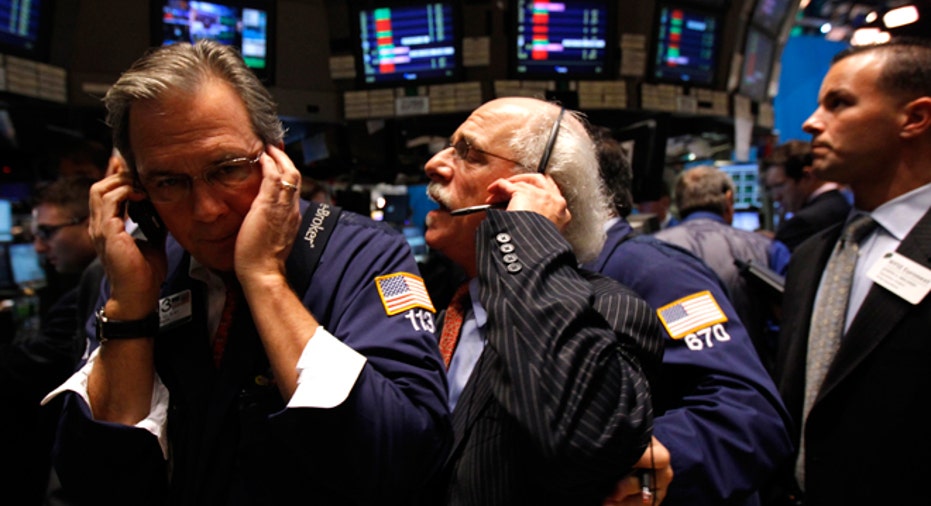Sometimes Doing Nothing is the Best Strategy

The long-awaited stock market correction appears to be over, ancient history for most investors who are apparently no longer concerned with tumultuous emerging markets, lackluster domestic economic data and so-so fourth-quarter earnings.
Instead, the broadly-watched S&P 500 index is flirting with new highs, the Dow Jones Industrial average is steadily climbing back to its peak of late last year and the Nasdaq Composite Index is approaching levels not seen since the tech boom of the late 1990s.
Which requires me to reiterate my position that stock prices are unreasonably high, undoubtedly inflated by the Federal Reserve’s long-running easy-money policies.
I’ve seen my share of bubbles, most recently in housing prices and before that in technology stocks. It’s always the same: people who ought to know better justify the run-up and convince the rest of us that “this time it’s different.”
We’re not even close to those earlier hysterias, but you know what they say: those who forget history are bound to repeat it.
In any case, I think even the Fed has quietly come to the same conclusion on stock prices, notwithstanding some recent public comments to the contrary from newly installed Fed Chair Janet Yellen.
Peter Tchir, a smart analyst whose reports I read regularly, has noted how uniformly Fed policy makers have come out in support of continuing the tapering program despite the recent headwinds that seem to be holding back a healthier recovery.
The Days of Easy Money Are Over
Tchir, founder of TF Market Advisors, noted that former Fed Chair Ben Bernanke always hedged his bets whenever he spoke of tapering, making sure to remind anyone who was listening (lots of people) that bond purchases could also be increased if the data took a turn for the worse.
Well, Bernanke’s gone now and the data have taken a turn for the worse. Yet no one in Fed-land is talking about increasing bond purchases. All the current talk seems geared toward ensuring markets that the Fed plans to continue cutting its bond purchases by $10 billion at regular intervals until the program expires later this year.
Despite this jawboning by central bankers, investors keep pushing stocks higher, as if the policy makers at the Fed are just kidding about tapering and the easy money will continue to flow in perpetuity.
It won’t.
When investors realize that, and should that realization arrive around the same time some future unseen calamity occurs, there will undoubtedly be a real correction, a shakeout that forces stock prices more into alignment with the weak economic recovery.
That’s not such a bad thing.
The moral of all this is that markets are likely to be volatile for the foreseeable future as the Fed unwinds its unprecedented stimulus policies and investor sentiment swirls in response to that while simultaneously reacting to incoming data.
My advice to the average investor, the guy who checks his 401(k) every now and then, is to ignore what the professionals are doing. They’re paid to respond to every jobs report, every piece of housing data, every consumer sentiment index. The rest of us are not.
I always felt like a heretic when I used to appear on television during past spates of market volatility and offered the same piece of advice when asked by the anchors what the average investor should be doing in response to the upheavals.
“Nothing,” I would say, inevitably disappointing my television colleagues because I declined to offer a specific trading pattern to help mom and pop investors maneuver their way through the rough patch.
Patience over Panic
Once I even had the temerity to suggest that the worst thing mom and pop investors could do was to watch financial news programs (like the one I was appearing on), which tend to cover each day’s market gyrations as if they are the Kentucky Derby, the Super Bowl or the seventh game of the World Series.
My ace in the hole during these uncomfortable televised exchanges was always John Bogle, the legendary founder of Vanguard and the father of the modern index mutual fund, an instrument that favors patience over panic.
When the television anchors began berating me for suggesting investors should do nothing as the apocalypse was unfolding, I would raise a finger for theatrical affect and say, “Time is your friend. Impulse is your enemy.” Or perhaps, “Buy right and hold tight.”
I would let the quote sink in and then ask my television colleagues if they knew from which market guru I was quoting. The revelation that Bogle was the source of the quote never failed to change the tone of the debate.
How could it not. No longer was I advocating indifference in the face of calamity, it was John Bogle preaching resolve with an eye toward the long view. The trick never failed to at least allow for the possibility that, for most of us at least, sometimes doing nothing is the best trading strategy of all.



















